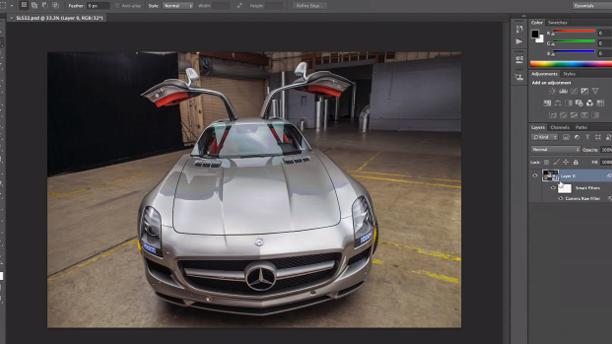johnnack
Latest

Adobe's Photoshop guru John Nack is heading to Google's photography team
If you needed further proof that Google was serious about its photography efforts, one of Adobe's main Photoshop folks is heading for Mountain View to pitch in. John Nack, former Senior Product Manager for Photoshop, has been with the creative software outfit for about 14 years and led the software's first public beta (CS3) and the introduction of notable features like Smart Objects. Most recently, Nack has worked on Adobe's mobile efforts as Principle Product Manager. It's no surprise that Google is looking to dive further into photo editing after debuting Auto Awesome last year and snatching up Snapseed before that. In a blog post announcing the move, Nack noted that the two companies have collaborated for quite some time and that he hopes to pursue that relationship further, writing "There's so much we can all do to help photographers & storytellers of every sort." For now, we'll just have to bid out time until Google's next snapshot-focused software release.

Adobe's John Nack explains lack of PPC support in Soundbooth
Some corners of the Mac web aren't too happy about Adobe's choice to not support the PowerPC chip with their latest beta offering, Soundbooth. We've received a few comments on our original post, and Macintouch has a few posts from readers who are, let's say, 'somewhat upset.' To help bring some sense to the table, Adobe's John Nack (the product manager of Photoshop, mind you) has stepped in to lay down the company's decision on his blog. Long story short, John explains that support isn't being 'removed' from the product - while it's been dubbed as 'Audition Elements' by some, it's a brand new baby for both Mac OS X and Windows. In this context, Adobe made the choice of streamlining development (supporting one chipset) which favors focusing on things like features and performance, rather than trying to get a team of audio engineers who are used to working with Intel-based chips to start jugging a second architecture (PowerPC) which Adobe believes Apple is treating as "dead to us."I think this is a really difficult position for Adobe to be in, and given the circumstances, I understand their decision. While the PowerPC architecture is by no means 'dead' just yet, it's getting up from the dinner table and making its way for the coat closet (don't forget, there's plenty of conversation and lingering while putting one's coat on and rounding up all the kids). Readers at Macintouch have cited that a fair portion of the Mac audio industry are still using PowerPC based rigs and probably will for quite some time, and I think that might also have been a significant factor in the decision: Soundbooth isn't competing with Pro Tools and professional workflows, it's a mid-range app (at least from what I understand). I am certainly no software engineer, and I know equally little about the intricacies of audio software, but if a company with Adobe's girth says that now is a bad time to start building PowerPC support into a brand new product - I'll listen. From the non-developer sidelines, it sounds like it's a lot easier for code ninjas who already had a PowerPC app to unite forces with Intel support (thanks in part to Apple's UB efforts), as opposed to getting Intel backgrounds (remember: Adobe's audio guys are coming over from Windows development on this one) to shake hands with PowerPC. In the grander scheme of Adobe matters, however, they haven't shown this "abandoning" attitude in any of their other existing products, such as the entire Creative Suite (in fact Nack reminds us PPC hasn't gone anywhere in CS3), and even Lightroom Photoshop Lightroom, another recent beta offering for the pro photography crowd, is in fact a Universal Binary. I think Soundbooth was simply caught in the crossfire of this chip architecture migration, and Adobe had to make a hard decision that was ultimately tipped by looking ahead at the Mac platform, and realizing exactly where Soundbooth is going to sit on the ladder of Mac OS X-based audio editing.
